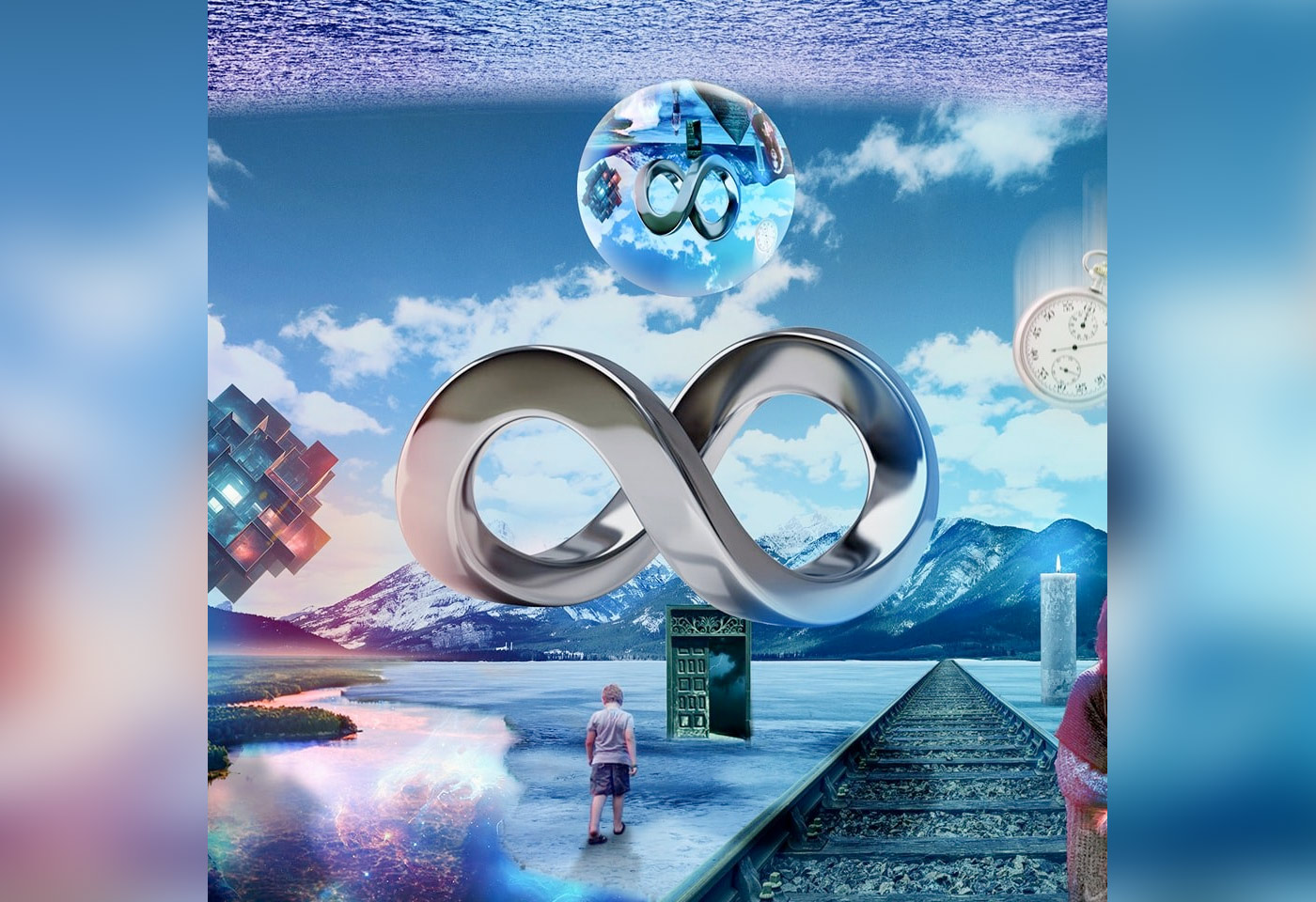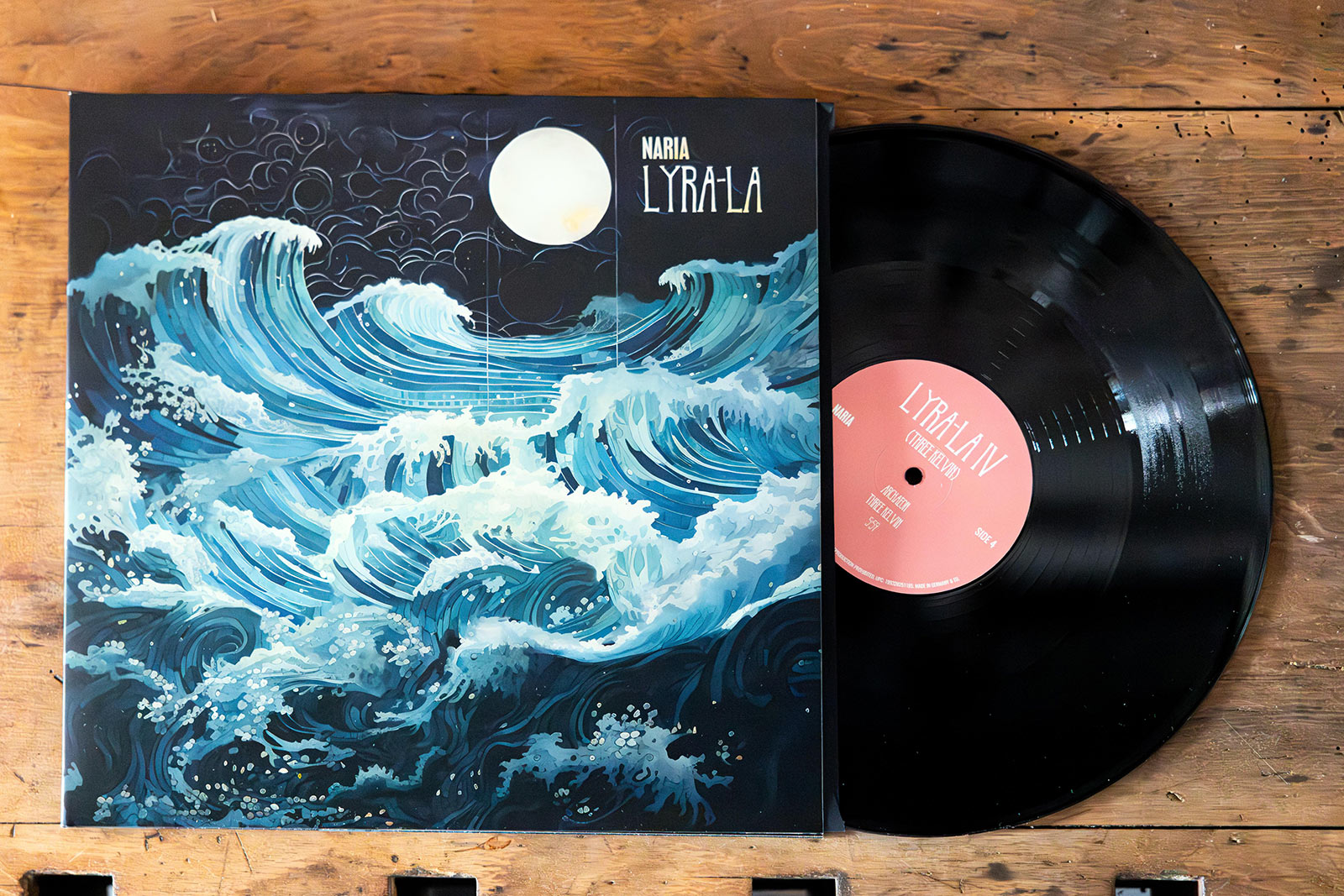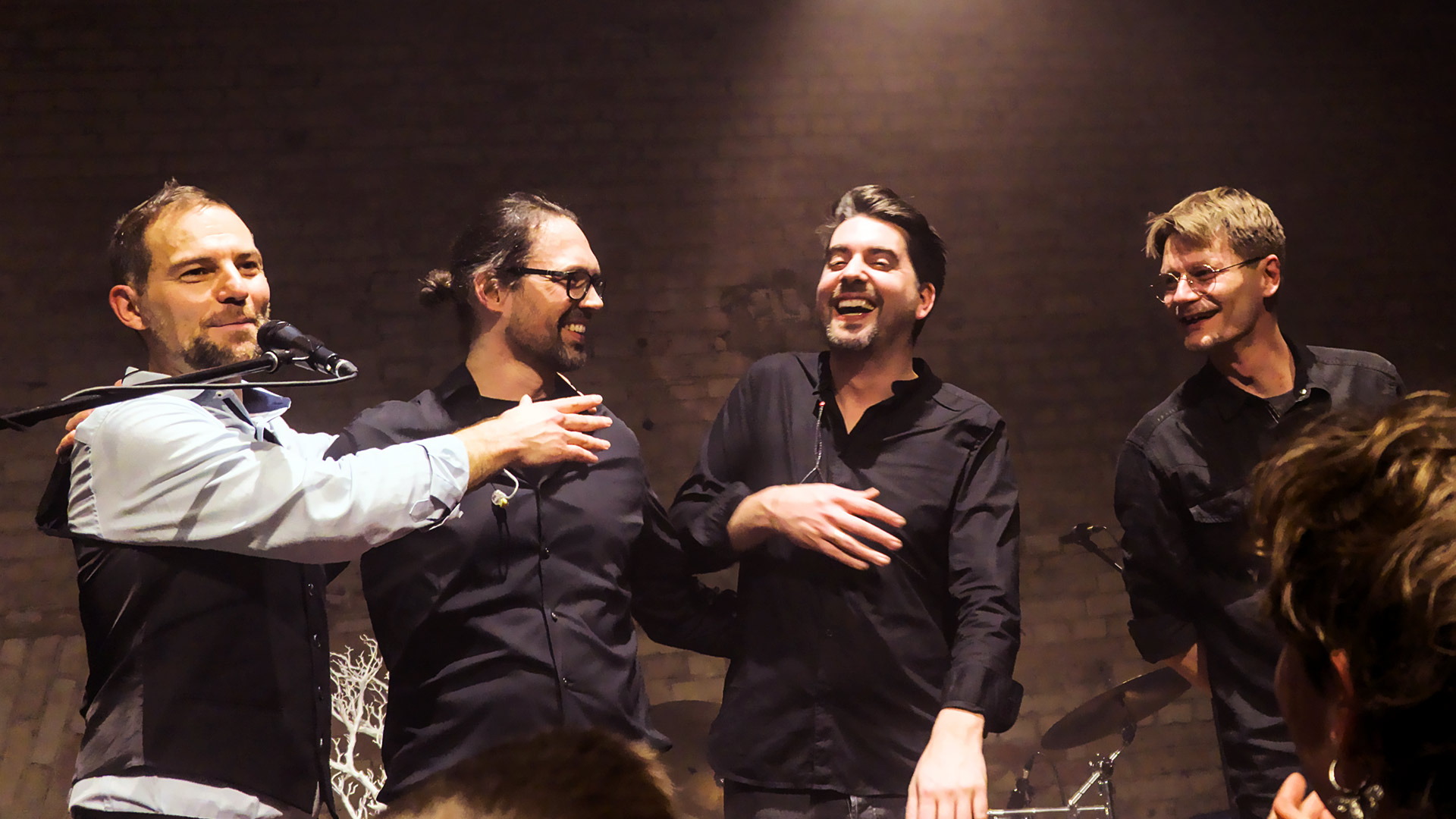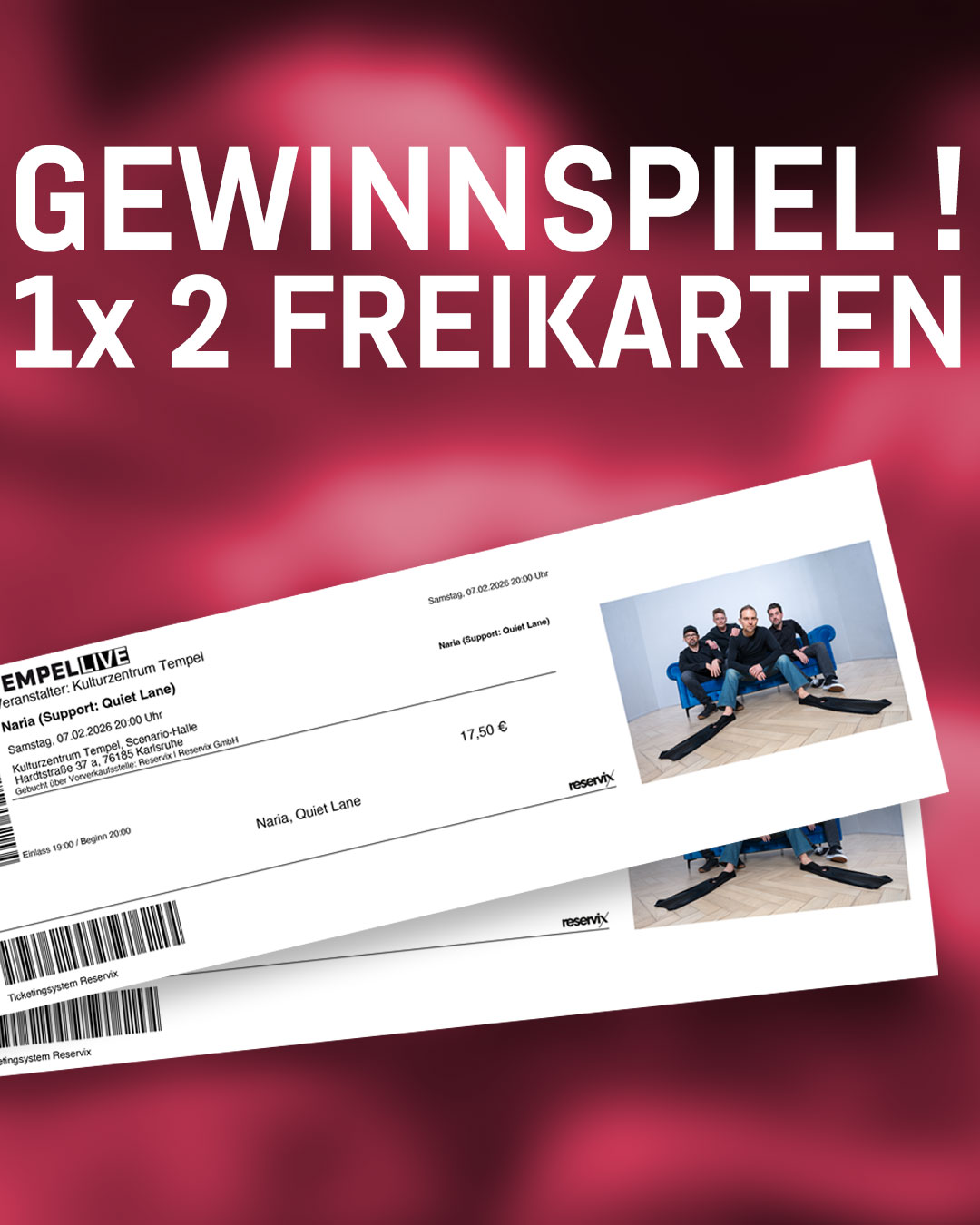
We highly appriciate this detailed review!
We are really amazed by this wonderful review of “Lyra-La” by Benjamin Quirarte @Murderedbypousers!
It left me speechless! Very detailed and interpreted with a lot of love.
At the end of the day, I do all of this for myself and my band – simply because I have to. And honestly, that’s enough. But every now and then I catch myself hoping that maybe someone out there will really take the time to listen – recognizing everything that’s in it, and maybe even finding the same joy in it that we do.
This in-depth review is exactly one of those moments. The most beautiful compliment I could have received!
Many thanks, Benjamin @Nación Progresiva!
And at this point, a big thank you as well for all the wonderful messages I’ve received over the past two weeks. I must admit, after working on this for so long, it feels really good to read and hear your messages!
Original Spanish version of the review
English translation of the album review
Naria – Lyra La
Nacion Progresiva
by Benjamin Quirarte @Murderedbypousers
There are few times when a cradle-born Prog fan can be truly surprised by a new, contemporary album. Pop-rock-punk-prog? Bring it on.
Naria is a conceptual band from Karlsruhe, Germany, created by Marc Eisele (composition, guitars, vocals, and production) with the vision of crafting unique musical onomatopoeias. The band’s goal is to create a quartet of albums based on the four elements of nature, following an ancient alchemical concept that also includes a fifth element: Aether.
Thirteen years ago, they surprised us with “Naria and The Fly …Waiting for Lunch”, a double album encompassing the elements “Air and Earth” – a record that should not go unnoticed by anyone. In this work, the narrative carries 99% of the value of the piece itself. So that leaves us with two albums to go.
Lyra-La was recorded over the past several years and tells the story of a man drowning in the depths of the sea – and the tale of how this man cannot tell whether he’s actually drowning or merely dreaming.
The album’s composition has a structure that, in Marc’s own words, is often made up of anecdotes from dreams he experienced in childhood – dreams that now, through the lens of adulthood, no longer make logical sense.
A man is adrift in the open, stormy ocean at night. He struggles against the primal force of the sea to avoid drowning. But the fight is futile. He sinks into the depths, and everything moves in slow motion: memories, emotions, fragments of his life flash before his eyes. Then, a sudden sting – a jolt of adrenaline. A paramedic?
Let us embark on the paradigm of this album in this review:
1. They Can See Nothing But Sea
Understanding the concept of the album, the title makes perfect sense for the opening track. We hear a riff similar to post-punk, but leaning more toward post-rock. Around the 40-second mark, Marc’s youthful voice comes in – reminiscent of 2000s hardcore, which will undoubtedly take any thirty-something back to their teenage years. Even the backing vocals and choruses have that distinct 2000s vibe. It’s an uncommon start for a progressive genre album
But it’s just a prelude. Around a minute and a half in, there’s a pause that introduces an electric guitar solo – a brief section evoking the feeling of drowning – before the song spirals into a crashing wave of sound and returns to the early-2000s-style chorus. A completely “blue” piece lasting 4 minutes and 10 seconds, it ends with deeply guttural distortions that lead us into its lyrics:
“Wave crests, wave troughs. A lullaby in mother‘s embrace.
Wave troughs, wave crests. A lullaby in mother’s embrace.”
2. Dreams, Candles and Batteries for Breakfast
A super calming introduction, like someone drifting along the shoreline. The drums come in soon after to add a post-rock flavor. The pauses and rhythm changes are notable – not polyrhythms, but almost full-on genre shifts throughout the track
There’s a heavily distorted bass, and the drums play a steady 1-2, 1-2, 1-2, 1-2 pattern – very reminiscent of black jazz. Around the 4-minute mark, we get a beautifully immersive sonic passage that sounds very much like a storm, followed by a pitch and rhythm shift into something far more soothing. The drums begin to narrate the scene while a weeping guitar joins in, leading to a silence that is both alarming and calming at the same time.
This is an album where understanding the lyrics is crucial to grasping the rhythmic narrative. It’s a bit like Genesis, though arguably more complex and less theatrical. The lyrics here describe a woman who is baffled, unable to hide her facial expressions – there’s someone else…
“Her lower jaw is hanging neglected from the bottom of her face, forced by the law of gravity.”
Up to this point, it seems we’re still not actually drowning.
3. Lyra-La
We begin with an acoustic guitar accompanying Marc’s voice, narrating how he feels at this moment – not quite asleep, but not fully awake either. Not “asleep,” but sleepy – that half-dreaming state.
He’s trying to convince only himself. There’s blue, there’s water living all around. She is gone. And who is she? The woman – the one who has now turned into an old woman and has been present since track one.
But now… we are drowning. There’s a deadly silence in the air.
The album’s title track, entirely acoustic, ends with a hauntingly comforting harmonica… leaving us in true doubt about what’s actually happening.
4. Adrenaline Drip And Outer Walls
A riff reminiscent of Zappa opens the track – chaotic but rich in sound – with drums using rimshots to produce a more metallic tone. There’s a strong jazz influence here, with hints of Haken, though in truth this album stands entirely on its own. Perhaps it’s only Marc’s vocal tone and range that occasionally align with the guitar in a way that brings Haken to mind.
It’s the album’s longest track, clocking in at 8:05. The Haken-like tones are occasionally swapped for that ever-present pop-punk energy. The tonal shifts strongly resemble the ebb and flow of the sea. Around the halfway mark, things return to stillness. This isn’t an album meant to go wild with; its atmosphere serves as a structural constant, with passages where the music quiets completely – never sappy or ballad-like, just… calm.
The drums perform a type of crescendo with a rolling pattern that simultaneously adjusts the BPM – slowing it, speeding it up, then slowing it again. We hear guitar tones eerily similar to whale calls, followed by moments of stillness. You could practically feel the water at your neck with this track.
A soundscape around minute 6 feels like the song’s end: watery tones, whale cries – something deep and primordial – all generated solely through string distortion, with no keyboard (notably absent throughout the album). We get a full minute of near silence, during which we hear only waves blending with the protagonist’s breathing. At this point, the story tells us a nurse is present… and there’s been an injection. Of what? We don’t know. Curiously, her eyes are an endless blue – perhaps the sea itself. But there’s only confusion in the dreams we’re traversing.
5. Epiphany Of A Drowning Man
An acoustic section, positioned mid-album, with reverb and whispers. The lyrics are the centerpiece here, acting as a bridge, interlude, and midpoint all in one. This track would be perfect on vinyl, if not for the long durations earlier on, which would require a three-disc release.
“One more blink, then the sink.
Minds drop deep.
Life pulls, hearts shrink.
Give me something to keep.”
It seems… we are slipping away.
6. About Waves On Below
At times, it reminded me of Gleb Kolyadin’s recent solo work. This track is entirely pop – not quite a ballad, but structured like one, both lyrically and rhythmically. With the progressive scene increasingly embracing pop-prog as real and valid – not to mention enjoyable – it’s great to see this piece included.
Again, the lyrics take center stage. The guitar strums gently, joined by an additional part from Simon Miko, and backing vocals by Rouven Sadler, which give the illusion of solid ground. But no! Yes, but no.
Our protagonist is cold and hungry, stranded at just 3 Kelvin, and hasn’t had breakfast… but it doesn’t matter, he’s alone in a massive ocean. A voice pleads with us to save the girl, a siren-like call warning us not to “fall asleep.”
7. Eucaryota
If you’re not paying close attention, you might lose track of the album’s sequence. Once again, we’re in post territory with hints of pop-punk. Time signature changes from 4/4 to 3/4, guitar polyrhythms similar to those in track five. The bass constantly supports the guitar – not playing the same notes, but accentuating them.
Marc’s vocal tone shines here – youthful and evolved since the previous release. Midway through the song, before the chorus line “Counting all the hours”, there’s a digitally distorted vocal moment that creates an effect unlike anything I’ve heard before – his voice becomes off-key, like a 12-year-old boy’s breaking voice.
The lyrics tie in:
“Long beard, outgrown haircut, no growling stomach for a long, endless time.”
Paradoxical, even inverted. It seems our character has not yet found salvation. He’s now standing between walls… and grass. Is it a hospital? Is he in a coma? Or is this a symbolic initiation into the elements?
8. Wax Phobia I
1, 2, 3, 4 — 1, 2, 3, 4 — 1, 2, 3, 4 — 3, 3, 2, 2, 3, 5 — the drums mark the rhythm. A catchy riff and sharp high notes from Marc showcase his excellent baritone vocal talent. Whale-like tones can once again be heard in the background.
Highly recommended to listen on Bandcamp, where the audio quality is superior.
My favorite track of the entire album – and I say that as a drummer – since it’s where the instrument shines the most. Here, the drums take center stage, in contrast to the rest of the album, which leans heavily on strings and vocals.
It feels like a finale before an encore – the nuances, the transitions, the style – this album has a truly unique structure. And when I say unique, I really mean it.
“We were all wearing uncomfortable suits, and the candles were thin – despite the bad weather, they were lit.”
A funeral… or the continuation of an initiatory rite? Perhaps both.
9. Wax Phobia II
In this track, we once again hear Marc’s baritone range on full display. It’s very noticeable – in the opening alone, he shifts across more than 12 vocal ranges.
The guitar has a different pitch compared to the rest of the album – it sounds slightly lower here and is actually less complex; maybe even a different guitar was used.
There’s a short solo of about 13 seconds, also at a lower pitch. The bass is more present than in any previous track and supports the lyrics perfectly. The lyrics tell us:
“Still, no one has noticed anything.
He starts chewing the bitter dough.
It sticks in the gaps between his teeth.
Disgusting!
The nurse rushes by again with another dose of adrenaline.
Nausea! He shudders in revulsion!”
10. Archaeon
An instrumental section, like the last three. I don’t want to sound repetitive, but the structure of this album is wild. It truly reflects the bipolarity of the sea.
We hear strings and aquatic fades that serve as a sad, melancholic outro – preparing us for the album’s conclusion.
11. Three Kelvin
We end with an open-ending tone, like an action film. A melody that skips over the outro rhythmically – it won’t connect properly unless you’re tuned into the narrative intention.
There’s a very Hispanic circus-like tone here – one that causes more unease than amusement – with a brief but very noticeable expressive detuning that actually does recall Henry Spychalski of HMLTD. It’s wonderful to find only two musical references in an otherwise completely original album.
“Lyra-La, that’s how she introduced herself.
Meanwhile, you can see her features.
The water has even washed away her heavy makeup,
exposing the wrinkles in her skin.
‘Does it mean something good?’ But he doesn’t know the answer. Sting!
‘Now we instill reality in small doses,
so you don’t overstrain yourself.’
There it was! The answer! Yes, we have the answer!
His question remains an unfinished thought, unspoken – what he forgot.”
Conclusion
What we have here is something truly fresh across these 51 excellently structured minutes. In fact, due to the album’s precise shifts in pitch, rhythm, BPM, and structure, it feels closer to 70 minutes long.
An outstanding effort by Naria. However, this is an album meant to be experienced in full – you can’t just take a bite from one side of the apple. You need the full context: of the band, of the lyrics, and of the essence they’re trying to imprint on the listener.
Genre? Yes: Progressive Pop Rock Punk. Perfect.
This year is bringing NEW things – finally, not just the same old bread!
It looks like we’ll have to wait to find out how the story continues.
Latest news
-
 Shop coming soon
18. February 2026
Shop coming soon
18. February 2026
-
 Thank You! Live at Tempel, Karlsruhe
9. February 2026
Thank You! Live at Tempel, Karlsruhe
9. February 2026
-
 TICKETS // GIVE AWAY
26. January 2026
TICKETS // GIVE AWAY
26. January 2026
-
 Live at Tempel, Karlsruhe 07/02/25
12. January 2026
Live at Tempel, Karlsruhe 07/02/25
12. January 2026
-
-
Search
Latest News
-
 Shop coming soon
18. February 2026
Shop coming soon
18. February 2026
-
 Thank You! Live at Tempel, Karlsruhe
9. February 2026
Thank You! Live at Tempel, Karlsruhe
9. February 2026
-
 TICKETS // GIVE AWAY
26. January 2026
TICKETS // GIVE AWAY
26. January 2026
-
 Live at Tempel, Karlsruhe 07/02/25
12. January 2026
Live at Tempel, Karlsruhe 07/02/25
12. January 2026
-
 New Drum Machine
6. October 2025
New Drum Machine
6. October 2025
